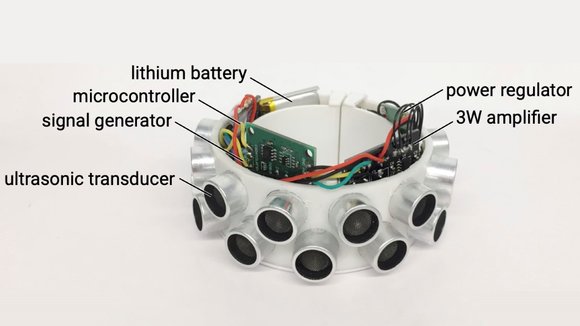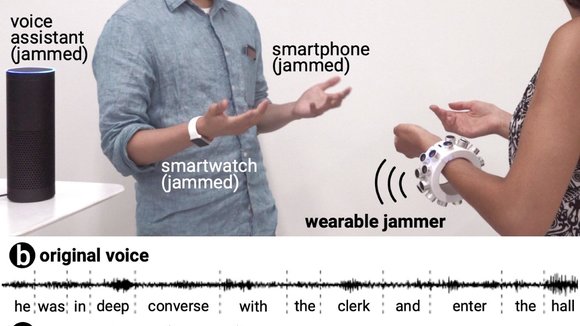1/4
This “Bracelet of Silence” actively blocks Alexa and Siri from hearing your conversations
The dilemma with phones and smart-speakers are that they undermine the privacy of not just their owners, but everyone around them. Maybe you have a friend who loves talking about their cat, and that’s perfectly fine… until YOU begin getting ads for cat-food on your Instagram.
Students at the University of Chicago developed a unique, wrist-worn bracelet that can remotely scramble all sorts of microphones in a working radius of a few feet. Just wear “The Bracelet of Silence” and switch it on when you want a private conversation, and its multiple ultrasonic sensors disable nearby microphones, preventing them from being able to hear anything you say. The wearable comes with an array of 24 ultrasonic transducers that jam microphones in ALL directions. When worn on your hand, the jammer uses your hand’s movements to increase its range and eliminate audio blind-spots, effectively jamming all sorts of microphones (even ones hidden from view). The video above successfully demonstrates how the jammer works… in fact, it even disables the video-recording camera’s in-built microphone, preventing you from hearing anything the subjects of the video are saying!
The ultrasonic transducers emit a frequency that can’t be detected by human ears, so you can scramble electronic devices around you but still have a normal conversation knowing fully well that your phone or watch isn’t privy to what you’re talking about. The designers at the University of Chicago demonstrated in the video above how important meetings, briefings, and discussions can be made truly confidential with the jammer bracelet, but imagine a world where you could instantly block Alexa, Siri, and Google from snooping in on every single one of your conversations… and this isn’t the first wearable designed to help reclaim privacy! Last year, Scott Urban designed the
that prevent cameras from capturing and recognizing faces. What a great time to be alive, huh!
Designer: Yuxin Chen, Huiying Li, Shan-Yuan Teng, Steven Nagels, Zhijing Li, Pedro Lopes, Ben Y. Zhao & Haitao Zheng (University of Chicago)
发布于2020-10-22
设计师
Yuxin Chen, Huiying Li, Shan-Yuan Teng, Steven Nagels, Zhijing Li, Pedro Lopes, Ben Y. Zhao & Haitao Zheng (University of Chicago)
颜色
相关推荐




